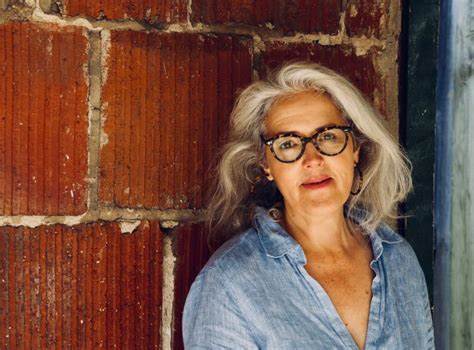(单词翻译:单击)
听力文本
JUDY WOODRUFF: As we reported earlier in the program, a congressional subcommittee held hearings on legislation that would pay reparations for slavery. The purpose of the hearing was to examine "the legacy of the transatlantic slave trade, its continuing impact on the community and the path to restorative justice". Sarah Blake is a novelist who's been thinking about reparations and why past attempts have failed.
In her Humble Opinion, this time is different.

SARAH BLAKE, Author, The Guest Book: How long is now? This question, graffitied high above my head on a blank wall near my apartment in Berlin, greeted me daily years ago. Anonymous and existential, the phrase captured the spirit of that city. But I have been thinking about it more and more lately, trying to make sense of what feels like a historical moment here, a moment when this country appears to be acknowledging a through line between our past and our present in a way I have never seen. I have spent the past eight years writing a multi-generational family novel that tries to understand why, as William Faulkner wrote and President Obama reminded us, the past isn't dead; it isn't even past. And I began to see how family memory is made of half-truths that become false myth, which echoes how this country's memory works as well, its history passed down as an open secret, half-told. The myth? Slavery is over. The past is past. The truth? Its consequences live on, ensuring that who we are and who we were have always been twin faces in our country's mirror, a mirror African-Americans have held up to the country for years, but a mirror which the collective white imagination has avoided, until now. Stories of voter suppression in Georgia, law enforcement unable to restrain white supremacy in Charlottesville, blackface in yearbooks. If you are looking for social justice, the system is broken, or maybe broken open for all, at last, to see. The serious, extensive discussion of reparations, from college campuses to presidential candidates, and the national reckoning with our public monuments suggests the white imagination is beginning to see beyond the veil we hung between then and now. Seeing that our collective racial past is and always has been present in our institutions. It never stopped, no matter what we told ourselves. How long, indeed, is now? If we agree that policy change is only possible when collective imaginations shift, then it is fitting that the talk of reparations now recalls the enormous shift asked of the country's imagination during Reconstruction. And the questions asked 150 years ago, who are we and who do we want to be as a country, are questions we are asking again. But what if, this time, we look at the truth in the mirror, and break now from then, making a truer now, one that doesn't forget the past, but confronts, acknowledges, reconstructs and so, we can hope, repairs?
JUDY WOODRUFF: Novelist Sarah Blake.
重点解析
1.make sense of 弄懂
This is to help her to come to terms with her early upbringing and make sense of past experiences.
这旨在帮助她认可自己早先所受的教育,并让她了解自己过去的经历。
2.from then 从那时起
Morrison took the news badly and from then on his spirits noticeably sagged.
这消息对莫里森打击很大,从那以后,他明显萎靡不振。
3.historical moment 历史时刻
They were historical moment not only for the Olympic Movement but also for the world.
这不但是奥林匹克运动更是整个世界的历史时刻!
4.hold up 举起
Mills have iron pillars all over the place holding up the roof
工厂里四处都立有铁柱支撑着房顶。
5.social justice 社会公正
We base this call on grounds of social justice and equity.
我们基于社会正义和公平发出这一呼吁。
参考译文
朱迪·伍德拉夫:在之前的节目中有预告过,国会委员会下属的某个小组举行了听证会,内容是关于补偿奴隶贩卖的立法问题。此次听证会的目的是:审视“美国奴隶贩卖的历史问题遗留至今,还持续影响着美国当地社群,也影响着恢复性司法。”萨拉·布莱克是一位小说家,她的作品都是关于补充奴隶问题的思考,以及对过去失败尝试的思考。今晚《我之拙见》的内容会与小说的内容有区别。
萨拉·布莱克,《来宾登记》的作者:奴隶问题延续了多久了?我把这个问题写在我柏林公寓的空墙上,这块墙面在我的头顶上。多年前,我在柏林生活时,这句话每天我都能看见。这句人人都有的疑惑伴随着整个城市。不过,最近,关于这个问题,我思考的越来越多了,因为我想要弄明白今天怎么就具有历史意义了。大家都认为当前的美国似乎都认同一点——过去和现在有一种前所未有的区别。过去8年来,我一直在写一部关于几世同堂的小说,小说着力探讨这其中的原因。正如威廉·福克纳在作品中写过的那样,正如奥巴马总统提醒我们的那样:过去并未消亡,过去甚至依然对现在有影响。而且,我也开始注意到:家族记忆中真假参半,无从辨别,这也应验了美国记忆的运作机制——对外展示一部分,看似公开,实则埋藏着秘密。那么迷惑之处在哪里?它就在于有人认为奴隶问题已经成为过去,而过去的就过去了,不值得深思。那真实之处在哪里?它在于奴隶问题产生的后果会延续下去,就一定会产生一种现象——现在的我们和过去的我们其实是镜子前的双胞胎。其实多年来,非裔美籍人一直举着这面镜子,想让所有美国人看清楚镜子里的双胞胎。奈何所有白人都回避这个问题,直到现在也还在回避。这一情况从乔治亚州镇压选民、执法工作无法抑制夏洛茨维尔的白人至上主义并在年鉴里故意扮黑脸中可见一斑。每次想寻求社会公正的时候,体系就会显示出不健全。关于补偿奴隶问题的讨论,内容严肃,范围广泛,从大学校园到总统候选人,不一而足。我们国家对于公共遗迹的思考表明白人也开始看到过去与现在之间朦胧界限之外的东西。有人看到了黑人集体受到歧视的历史,无论是现在还是过去都是存在的。这种现象从未停止过,如何我们如何自欺欺人。那么,说起来,种族歧视究竟有多久了?如果我们能认同一点——只有集体想象发声变化,政策变化才有可能,那么想要补偿奴隶问题,就需要整个国家拿出美国重建时期做出巨大转变的决心。有一些问题是150年前就有人发问的,即我们是谁、我们国家想要实现什么。这些问题现在又想要重新审视。不过,如果这一次我们能正视镜子里的事实,将过去与现在彻底分裂开来,让现在百分百真实,不再忘记过去,而是正视、承认、重建过去,那么或许我们有希望补偿过去的错误。
朱迪·伍德拉夫:感谢本期主人公——小说家萨拉·布莱克。
译文为可可英语翻译,未经授权请勿转载!


